One day in Nawalpur several staff from my dad’s office decided that they needed to visit Narayan Ghat for some official business. The office had a Russian-made jeep (as I have said before everything that looked like the American “Jeep” was jeep to us). So I tagged along with my parents. I remember a few things about that trip. We all were cramped in the jeep, there could have been more than ten people on it. The jeep had trouble making over a steep hill near Daune Danda (this was the highest point between Narayan Ghat and Nawalpur), some of us had to get off so the driver could safely reach the hill top where he waited for us. From the hill looking down, we saw several black things along the Narayani riverbanks. We were told they were the crocodiles basking in the sun. At Narayan Ghat while the husbands attended to office duty, their families decided to go to the cinema. Indeed, cinema was a real treat for many of us including myself.
My grandfather used to take me with him every time he wanted to see a movie. He was a movie buff, and saw the same movie several times; back then going to the cinema was a major event, and was well-planned in advance. There were five theaters in Kathmandu Valley – Jay Nepal Chitraghar, Ranjana Cinema Hall and Biswo Jyoti in Kathmandu; Ashok Cinema in Patan; and Nava Durga Chitra Mandir in Bhaktapur. The ones in Kathmandu were 20 odd minutes from our house. Anyway, my grandfather made sure that I gave him company; as long as the kids were with their parents or an adult they could see movies for free. Most movies shown in the cinemas were from Bollywood. A typical Bollywood movie would be three hours long, the main story punctuated by several song and dance numbers. Bollywood songs were very popular in Kathmandu where they were repeatedly played out on Nepal Radio. My mother is from the south (Janakpur, a border town) so going to the cinema for her was a natural thing to do. Besides, movie was the only modern form of entertainment for many Nepalese as there was no television at that time. I was deeply influenced by Bollywood movies and songs. As it turns out, I had a talent for singing. I did not know back then, but it appears the talent for singing was passed from my mother'side of families. In my case, it was my mother. I will have some more postings on Bollywood movies and Hindi songs, as these were critical to my upbringing, and provide an interesting narrative to my memories.
So on a hot afternoon we all landed in Narayan Ghat’s cinema hall where “Balram Shree Krishna (1968 release) was playing. The story is about the Hindu god Krishna and his elder brother Balram, both make a formidable pair and fight the bad guys in the movie. Honestly, I don’t remember anything about the movie. What I remember is several moviegoers walked out frequently as the heat inside the cinema hall was almost unbearable. The sweat from neatly packed bodies in the theater, combined with the smoke from cigarettes made it impossible to watch the movie in one go. It turns out that the cinema hall was a newly converted warehouse, the ventilation was awful, and the fans far in between. But who would miss the chance to see such an exciting movie? During the movie,I went out only once and that was not because I wanted to get away from the heat but because I had to use the bathroom.
On another such occasion, my father and I visited our homestead in Chitwan, eight kilometers east from Narayan Ghat. My uncle had been living in Chitwan for some time and was taking care of the land. Our house was in the middle of the farm, it was a crudely built timber cottage with thatch grasses as roof. On the north side of the house there was a chicken pen and a goat corral. Our visit occurred during the rice harvesting season. I saw many people on our farm. I suppose they were either hired hands or neighbors who had come to help my uncle in exchange for his help at a later time. Some of them were using sickles to cut paddy, others were carrying the paddies which were neatly bundled and transported to a place near the house. It was my first time to witness a rice harvest. Villagers asked my father about me as this was the first time they had ever seen me. I tagged behind my dad, shying away from all the inquisitive eyes, and refraining myself from talking to them. Our farm land was adjacent to a dense forest (Barandabar); there were several tall Sal trees still standing on our land, remnants of what used to be a dense forest. Remember, both Nawalpur and Chitwan (combinedly Rapti Valley) were new settlements, where migrants from the central hills had moved in to seek their fortunes in the new promised land. Alas, no one had told them how difficult their life would be, what wild things they would encounter, and how some of them eventually would have to return to their original homes. Meanwhile, I was enjoying my very short visit to Chitwan; people seemed friendly and hardworking. There was no electricity, water came from the wells hand dug into the ground. Interestingly, the water table was very high; one could find water after digging a hole of about ten feet. People were singing (it is customary to sing while doing farm work) and chatting, as if the work was not hard but fun. I looked further away and saw blue mountains, far behind were the snow capped mighty Himalaya. The paddy fields were alternated by brightly colored mustard fields. There were green and yellow fields on the foreground, blue and white mountains in the background, clear blue sky overhead, and emerald green forest behind me. It felt like I was in a Bollywood dream sequence.
Sunday, August 30, 2009
Subscribe to:
Post Comments (Atom)
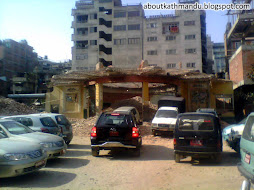





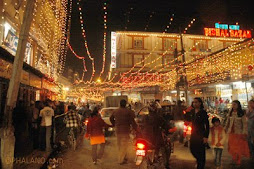

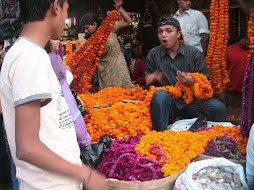
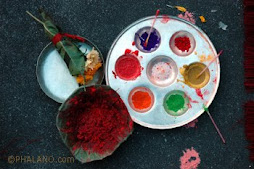




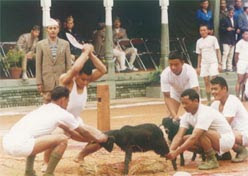




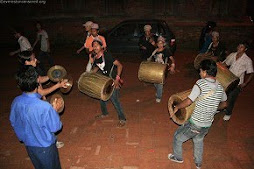
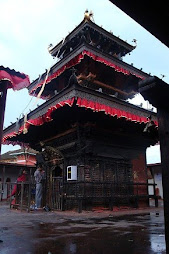

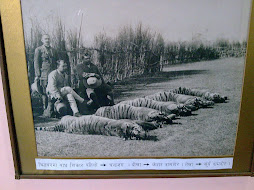




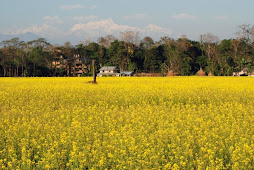



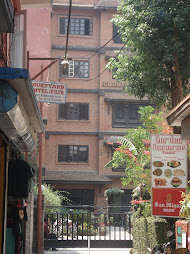



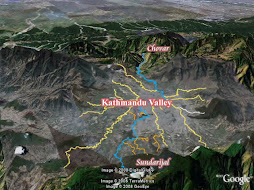





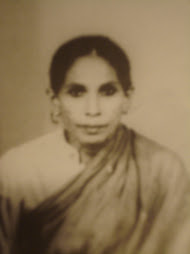
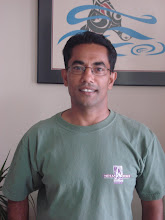
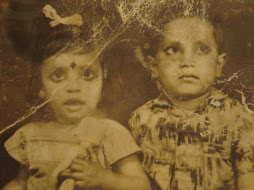
No comments:
Post a Comment